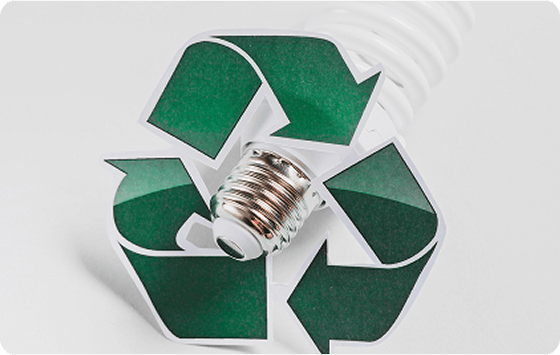
Extended Producer Responsibility (EPR) is a sustainable approach that shifts the responsibility of post-consumer product management from local governments to producers. It aims to encourage manufacturers to design products that are easier to reuse, recycle, or safely dispose of, thus reducing the environmental impact of their products. Compliance with EPR regulations ensures that producers meet their obligations, such as setting up collection systems, and recycling facilities or contributing to a collective fund for waste management. On that note, Elima offers a unified platform for managing EPR compliance across E-waste, Plastics, Tyres, and Batteries.

When we talk about EPR compliance in India, we’re talking about following the rules set by the CPCB. This includes officially registering, setting yearly goals for recycling or collecting waste, and showing proof — on paper — that those goals were actually reached.
Think of it as a life-cycle approach. If a company sells household electronics, it cannot walk away once the product is sold. When those products are discarded, the company must take responsibility to make sure they are collected and treated properly. For plastics, it means arranging for equivalent amounts of packaging waste to be recycled. The philosophy is simple: the company that profits from producing and selling should also bear responsibility for the waste that follows.
EPR is not just about regulation; it answers some real problems that India faces today:
If companies skip EPR, they can get hit with big fines or even lose their licenses.
Recycling and safe disposal help cut down on pollution and keep junk out of landfills.
Stuff like metals, plastics, and rubber can be used again, so we don’t need to dig up or make as much new material.
When a company owns up to its waste, people notice. It builds respect with customers and investors.
The rules push companies to keep better records and manage waste more carefully.
Many international markets demand sustainability; EPR compliance prepares Indian companies for that reality.

The government has laid out clear rules for how companies need to handle their waste:
E-Waste Management Rules, 2016 –These deal with collecting and recycling electronics and electrical stuff.
Plastic Waste Management Rules, 2016 –These apply to all kinds of plastic packaging, whether soft or hard. Companies must register and meet set recycling goals.
Hazardous and Other Wastes Rules, 2016 –These are for businesses that work with dangerous materials.
Regulators involved:
For many businesses, the compliance process can seem overwhelming. Elima helps by:

The law makes it mandatory for three groups:
Companies manufacturing goods under their own brand.
Entities bringing regulated goods into India.
Businesses that market products under their brand, regardless of who manufactures them.
The principle is clear: if your products generate waste in India, you must register and take responsibility for managing it.
The process generally follows these stages:

Register on the CPCB online portal.

Determine your recycling or collection targets for the year.

Engage with authorized recyclers or PROs to meet these targets.

Collect and upload invoices and proof of recycling.

Submit reports, which are then verified by the CPCB.
This cycle repeats annually, creating an ongoing accountability system.
The registration process is document-heavy, and typically asks for:

Although at first glance compliance looks like an additional cost, the benefits are tangible:
Staying legally protected from penalties and disruptions.
Strengthening brand image with customers who increasingly value sustainable practices.
Saving costs in the long term by recycling materials that would otherwise be wasted.
Bringing greater efficiency through systematic waste tracking.
Supporting India’s move towards a circular economy, where waste is treated as a resource.
We accomplish all your EPR goals. Access EPROne's extensive sourcing and recycling network to ensure all your targets are met - Punctually and Without Hassle
We meticulously manage your quarterly and annual filings, ensuring that all your EPR activities are accurately recorded with Central Pollution Control Board (CPCB) on time.
We handle the entire purchase and sales invoice uploading process for our partner Producers, Importers, Brand Owners(PIBO). We recognize the time-intensive nature of this task and assume full responsibility from start to finish.
Backed by a compliance team with over 75 years of collective experience, we expertly handle all regulatory compliance issues related to EPR, ensuring swift resolutions.
Integrate your EPR journey towards achieving circular supply chains. Use our comprehensive supply chain solutions to access high-quality recycled materials. Achieve your net-zero and reuse targets through EPRone.
Elima streamlines the EPR registration and renewal process for Producers, Importers, and Brand Owners on the CPCB portal. We provide complete technical, legal, and compliance services to obtain your EPR Authorization.
Elima enables end-to-end EPR compliance by overseeing the collection, recycling, and disposal processes for multiple waste categories. Our approach includes system design, documentation, traceability, and regulatory reporting tailored to the unique requirements of each material type. Explore how we manage compliance obligations across key waste streams below.
We lead the way in managing EPR compliance for electronic waste, ensuring responsible collection, recycling, and disposal. Our tailored solutions help producers establish efficient systems that comply with regulations and promote sustainability. With us, you can trust that your e-waste is managed responsibly, reducing its environmental impact.
Take a sustainable approach to plastic waste management with us. We provide comprehensive EPR solutions that facilitate effective collection and recycling programs. By partnering with us, producers can meet their obligations and contribute to a circular economy by recycling plastic waste into reusable materials, reducing environmental harm.
We offer specialized solutions for managing EPR related to tyre waste. Our services ensure proper disposal and recycling of old tyres, helping producers establish efficient collection systems. By partnering with us, producers can meet their obligations and reduce the environmental impact of tyre disposal, promoting sustainability in the tyre industry.
When it comes to managing EPR obligations for battery waste, we can be your trusted partner. Our solutions ensure proper collection, recycling, and disposal of batteries, helping producers establish compliant systems. With us, you can be assured that your battery waste is managed responsibly, minimizing its environmental impact.
Reach across all of India, all handled through one easy platform.

Extended Producer Responsibility, or EPR, isn’t a new idea around the world, but in India, it’s become a key part of how companies run. At its core, EPR means that makers, importers, and brand owners have to take care of their products even after people are done using them. Instead of dumping the whole job on local authorities, businesses now have to set up systems to collect, recycle, and safely get rid of waste.
In India, these duties have been turned into strict rules. They cover things like plastics, electronics, tyres, and batteries. Companies must sign up with the Central Pollution Control Board (CPCB), reach set goals every year, and turn in detailed reports. Elima’s compliance platform, EPROne, is designed to help companies manage these obligations without confusion. The platform brings everything under one roof—registrations, documentation, recycler partnerships, reporting, and even access to recycled materials—so compliance does not become a distraction from core business activities.
AtElima, we go beyond providing EPR compliance solutions; we aspire to inspire change. Our commitment is evident in our extensive awareness campaigns, which educate a large audience. We also support waste picker incentive development programs, ensuring that each initiative we undertake not only transforms lives but also contributes to a sustainable future for everyone.
Visit our website and contact us now!
Visit Our page